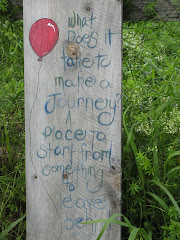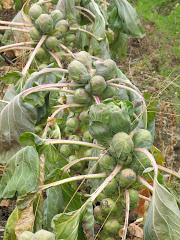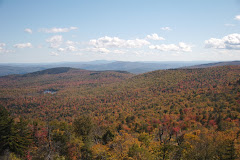
Spring is on its way. Our first planting of peas and spinach are in the ground, and both have germinated. (A discovery made after a couple minutes of digging around in the soil looking for the seeds. After he found a few fat green pea seeds with little roots trailing off of them, Nate said we should probably be patient and let the plants do their own thing. But digging around in the soil is one of the best things about farming!)
Our greenhouse is full. Lettuce, fennel, radicchio, celeriac, lots of flowers, peppers, eggplant, and tomatoes! And our cold frames are full, too - beautiful leafy brassicas (kale, collards, kohlrabi, broccoli, cabbage), swiss chard, and lots lots of onions, slated to go into the ground at the end of the week.
We have eleven lambs tumbling around the barn. If you haven't seen a week-old lamb jump a foot in the air just for the hell of it, you owe yourself a visit to Maggie's and a hour in the sun with these small, sweet, perky creatures. Their names, in case you were wondering, are: Buster Baker, Sugar Magnolia and Garcia (first triplets born a few weeks ago now), Henry and Pearl (the biggest, healthiest, funniest little white lambs we have), Birch and Ash (black and white twins), Lucy and Lana (black twins), little Athena (whose poor mama had a difficult birth - first i had to rearrange the lamb inside her, and then it took two of us pulling with all our strength to get her out), and Rose, the sweetest newest addition to our crew of lambs.
We still have three ewes hanging on to their babies, and we've lost one. Though you wouldn't know it to watch the lambs frolicking in the sun and nosily suckling on their mamas, we have had our share of hardships this season. It stated when #30, our oldest ewe, had a bad vaginal prolapse. A prolapse is when, due to an enormous about of pressure on the cervix, the tissue of the vagina is actually turned inside-out and falls out of the ewe. I happened to be on chores when this happened, and twice I pushed the whole mess of tissue back inside, but it kept falling out, so we called the vet, who stitched her up. #30 gave birth to three healthy babies, who are doing great, but she prolapsed again a few days later, which is very uncommon. She's still stitched up, and we're hoping she'll last through the summer, but the poor girl is in rough shape.
One of the problems with sheep is that they have been overly domesticated, and over hundreds of years, overbred for certain qualities: to have two or three (or four) lambs, to have big babies, and to to have good carcass quality. All this overbreeding has led to more complications during pregnancy and birth, as well as the tendency of mamas to reject their babies and not let them suckle. Luckily, there are a some wilder, less domesticated breeds out there, such as the Icelandic, who tend to have less of these problems.
The worst thing that happened this season was losing #32 and the babies (at least two) she had inside her. I woke up in the middle of the night to voices in the hall, and went out to the barn expecting a birth. Instead, there was a ewe lying on her back, dead, with all her intestines spilled out on the ground. Needless to say , it was a terrible, shocking hour. It took four of us to lift her up and get her out of there. In the morning, Jennifer called the vet, who said most likely what happened was that one of her lambs, kicking, actually ruptured the wall of the uterus. This is rare, but it can happen when a mother is carrying so much weight in lambs that the uterus gets big to accommodate them all, the walls thin out, and when a lamb kicks, it can puncture the whole organ. When this happens, there is nothing you can do.
Farming is not easy, or comfortable, and it certainly isn't always fun. But there are chives up in the garden, daffodils blooming already, and the peepers are singing at dusk. Yesterday we raked the mulch of the strawberries to let the light in, and I've been eating almost all meals on the porch. Mud season is just about over; the cow paddock is walkable (sort of). Last week we heard the ground thawing, water moving under the soil. The forsythia is greening up, and the maple buds tint the forest red. Best of all, our garlic is up! A half-acre of tiny green shoots poking through the straw, who, like us, have survived a long winter.
No, farming is not easy or comfortable. Springtime brings death along with the mess of greenery, the frisky lambs, the longer days. But spring on a farm is the best place to be. And if you're lucky enough to be me, being on a farm is always the best place - the only place - to be.





































































1 comment:
This photo brings me back to that amazing day in the greenhouse, bare feet in the warm sand.
The #32 experience definitely was scarring. I never again had an easy time checking the sheep at night.
And the sound of ground thawing is amazing.
Post a Comment